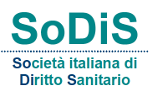Il contributo esamina, in una prospettiva di diritto privato, alcuni effetti giuridici delle nuove tecnologie in ambito sanitario, con specifico riguardo ai dispositivi medici AI-powered. Nella prima parte del lavoro, dopo aver esaminato la disciplina del consenso informato e i profili di responsabilità derivanti dalla sua violazione, sarà valutata la compatibilità dell’AI con l’obbligo di fornire un’informazione completa e comprensibile al paziente. Ricostruito il consenso informato come fondamento della relazione terapeutica, si indagherà il grado di trasformazione di tale rapporto in relazione all’AI, distinguendo tre ipotesi in base alla posizione rivestita dal dispositivo (ruolo preclusivo, coesistente e sostitutivo). Le criticità emerse evidenziano la necessità di valorizzare il fondamento antropologico della relazione di cura, riconoscendo la centralità di entrambi i suoi protagonisti, quali medico e paziente.
This contribution examines, from a private law perspective, certain legal implications of new technologies in the healthcare sector, with particular reference to AI-powered medical devices. The first part of the paper analyses the regulation of informed consent and the liability issues arising from its breach, while also assessing the compatibility of AI with the obligation to provide patients with complete and comprehensible information. Once informed consent is reconstructed as the foundation of the therapeutic relationship, the analysis explores how this relationship is transformed by the introduction of artificial intelligence, distinguishing three scenarios based on the role assumed by the device: preclusive, coexisting, and substitutive. The emerging challenges highlight the need to reaffirm the anthropological foundations of the care relationship, recognising the central and indispensable roles of both its key actors: doctor and patient.


